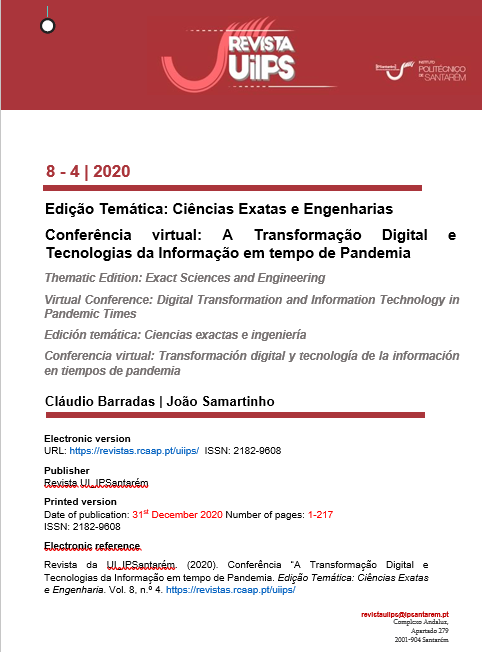The impacts of the Industry 4.0 in organisations – from Brazil and Portugal perspectives
DOI:
https://doi.org/10.25746/ruiips.v8.i4.21994Keywords:
Fourth industrial revolution. Integrated Technology. Industry 4.0 in Brazil. Industry 4.0 in PortugalAbstract
The current industry is going through a period of change, in which technologies are more evident and integrated, considered by many to be the Fourth Industrial Revolution, the so-called Industry 4.0. In the words of Klaus Schwab (2016) “we are at the beginning of a revolution that is fundamentally changing, the way we live, work and relate to each other’’. It has been characterized by the incorporation of emerging information technologies into the production environment, promoting substantial gains in productivity, flexibility and transforming the nature of industrial work. Industry 4.0 goes beyond traditional automation, anchored in broader concepts such as vertical and horizontal integration of systems. More than that, its impacts affect the entire business, political, economic and social sphere, which makes it, not by chance, being taxed as the fourth industrial revolution. n this perspective, this article aims to achieve and present the impacts that industry 4.0 brings to associations from the perspective of Brazil and Portugal.
Downloads
Published
Versions
- 2021-01-26 (2)
- 2020-12-30 (1)
How to Cite
Issue
Section
License
Copyright (c) 2020 Revista da UI_IPSantarém - Unidade de Investigação do Instituto Politécnico de Santarém

This work is licensed under a Creative Commons Attribution-NonCommercial-NoDerivatives 4.0 International License.
Authors publishing in this journal agree to the following terms:
Authors retain copyright and grant the journal the right of first publication, with the article simultaneously licensed under the Creative Commons Attribution License that allows sharing of the work with acknowledgement of authorship and initial publication in this journal.
Authors are permitted to enter into additional contracts separately for non-exclusive distribution of the version of the article published in this journal (e.g., publish in an institutional repository or as a book chapter), with acknowledgment of authorship and initial publication in this journal.
Authors have permission and are encouraged to publish and distribute their work online (e.g., in institutional repositories or on their personal webpage) at any point before or during the editorial process, as this may generate productive changes, as well as increase the impact and citation of the published work.



